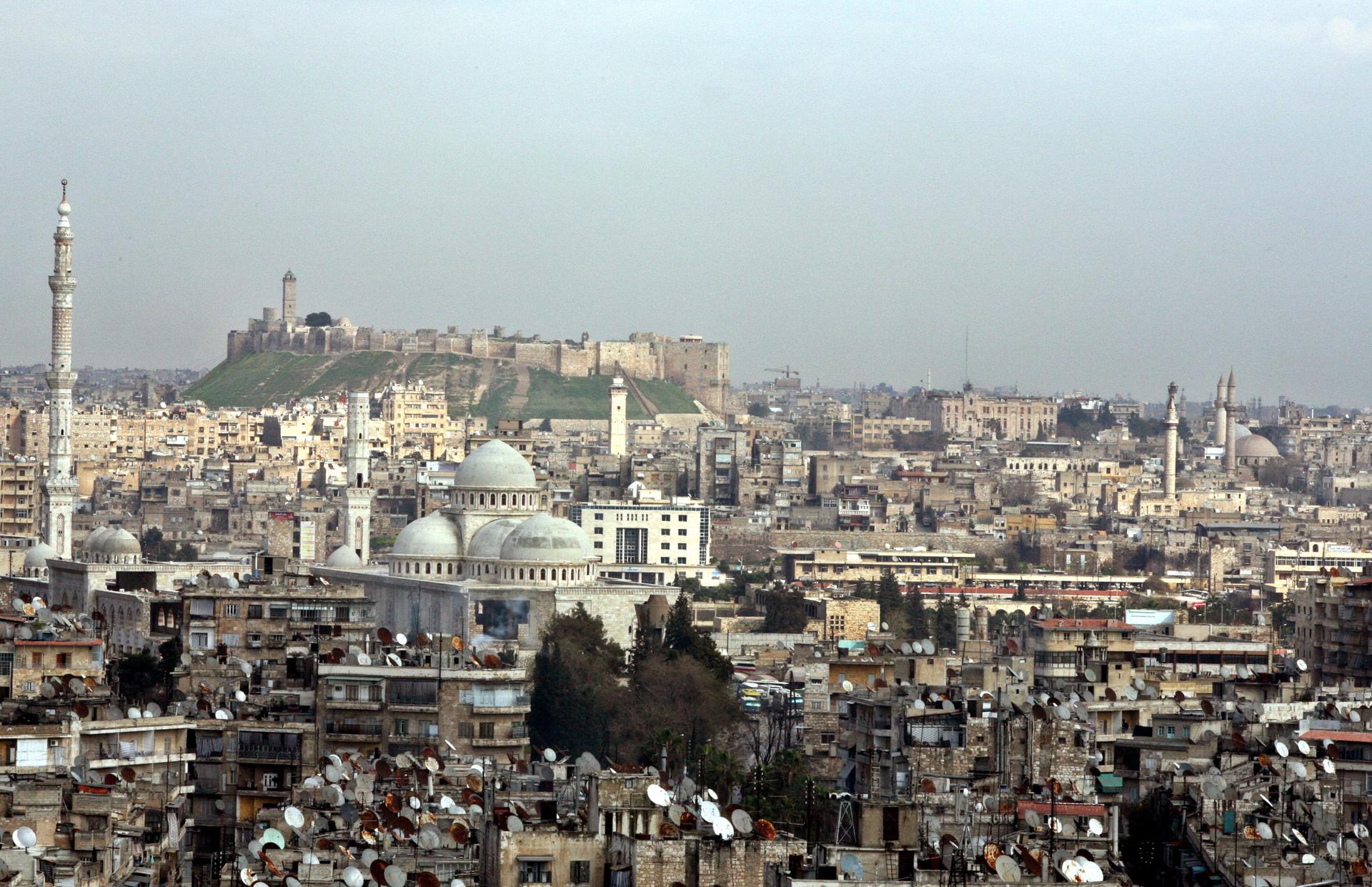This is a view of old Aleppo, looking toward the citadel, before the war. Many of the minarets and ancient buildings have been damaged or destroyed in the civil war.
Aleppo, Syria, is one of the oldest continuously inhabited cities in the world. The entire downtown area is a UNESCO World Heritage Site. And, before the revolution in 2011, the city had a thriving arts and cultural scene. But the war has changed everything.
Lina Sergie Attar, a writer and architect who grew up in Aleppo, remembers a city that has been nearly lost after years of conflict. She now lives in Chicago, where she helps run the Karam Foundation, a nonprofit that provides education and aid to people in need here in the United States and through many parts of the Middle East.
“Aleppo is really a magical place,” Attar says. “It is a place where you can literally feel history while you’re walking down the old streets. You can see the layers of history and so many civilizations, and it expresses the diversity of Aleppo’s history. So, you can see a mosque and a church and a synagogue on one old street.”
“You can see the bazaars, they’re very labyrinthian, very magical,” she adds. “I mean, they take you back to a different time when commerce actually began, as Aleppo was on the Silk Road. You can see where the caravans used to come, carrying goods, and you see the people who are actually in these shops and doing this kind of trade, have inherited that from their fathers and their grandfathers and great-grandfathers. So, you see that kind of continuation of history through the people themselves.”
Attar’s intimate knowledge of the city and the strong sense of historical identity makes the tragedy of Aleppo even harder to bear.
“All of the people from Aleppo are very much aware of their own family lineages,” says Attar. “We know where my great-great-grandfather lived and grew up. People can take you back in their family history centuries. So, being part of that is just part of your everyday life as a citizen of Aleppo.”
The Old City saw considerable renovation and restoration in the 1990s when Attar was an architecture student. She spent months doing a survey — house by house and room by room — to help city planners.
“I still remember the homes I went into,” Attar says. “There was one specific historic home that was completely abandoned, and it was magical. It had one of the largest arches in all of old Aleppo. It had a huge fountain in front of it. And it had a very long history … So, those kinds of discoveries were very, very special, and I’ll never forget that time that I spent there.”
The civil war has erased some of the long history that Attar and others had worked so hard to preserve.
“I’ve seen places and old buildings in the old city of Aleppo that were renovated, stone by stone, the carvings,” Attar continues. “So, to see that destroyed in seconds from airstrikes, from barrel bombs, from fires — it’s a loss that you can’t comprehend, that we as human beings are capable of destroying something that in your mind is indestructible.”
Attar says she has hardened herself to the material loss, though. Now, she tries to focus on the people of Aleppo and their suffering.
